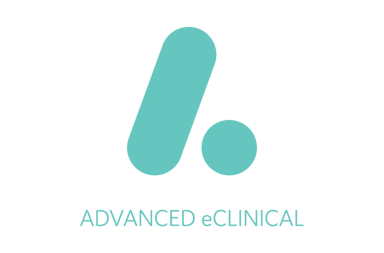How to Become a Registered Nurse in Georgia

Want personalized recommendations?
Let's match you to the right program

Registered nurses play a vital role in the healthcare industry, providing essential care and support to patients. If you are interested in pursuing a career as a registered nurse in Georgia, here are the key points you need to know:
Article continues after recommendations
Recommended for you
What is a Registered Nurse?
A registered nurse, often referred to as an RN, is a healthcare professional who is responsible for providing and coordinating patient care. They work closely with doctors and other healthcare professionals to ensure the well-being and recovery of their patients. Some of the responsibilities of a registered nurse include:
- Assessing patients' health conditions and creating care plans
- Administering medications and treatments
- Monitoring patients' progress and vital signs
- Educating patients and their families about their health conditions and self-care
- Collaborating with other healthcare professionals to provide comprehensive care
Where does a Registered Nurse work?
Registered nurses can work in a variety of healthcare settings, including:
- Hospitals
- Clinics
- Physician's offices
- Nursing homes
- Home healthcare agencies
- Schools
- Public health departments
Requirements to Become a Registered Nurse in Georgia
To become a registered nurse in Georgia, you must meet certain educational and legal requirements. Here are the key requirements:
Education:
- Obtain a high school diploma or GED equivalent.
- Complete an accredited nursing program, such as a Bachelor of Science in Nursing (BSN) or an Associate Degree in Nursing (ADN).
- The nursing program should include both classroom instruction and supervised clinical practice.
Legal Requirements:
- Pass the National Council Licensure Examination for Registered Nurses (NCLEX-RN).
- Submit an application to the Georgia Board of Nursing, including the required fees and supporting documents.
- Undergo a criminal background check.
Where can I find Registered Nurse classes in Georgia?
If you're looking for registered nurse classes in Georgia, Dreambound is the largest platform for students to find and compare vocational training programs. Dreambound can help you find registered nursing training programs near you in Atlanta and Augusta. Check out the following links for more information:
Dreambound offers a comprehensive directory of registered nursing programs, allowing you to easily compare courses, locations, and tuition fees. By using Dreambound, you can find the perfect registered nurse training program that meets your needs and career goals.
Remember, becoming a registered nurse requires dedication, hard work, and a genuine passion for helping others. With the right education and training, you can embark on a rewarding career in healthcare.
Get courses selected just for you
Try our powerful search engine
Article continues after recommendations
How do I get my Registered Nurse certification?
Becoming a Registered Nurse (RN) is a rewarding and fulfilling career choice. It requires dedication, hard work, and a commitment to lifelong learning. If you're interested in pursuing a career as an RN, here are the steps you need to take to obtain your certification.
-
Education: The first step in becoming an RN is completing the necessary education. There are three main educational paths to becoming an RN: diploma programs, associate degree in nursing (ADN) programs, and bachelor of science in nursing (BSN) programs. Diploma programs typically take around 2-3 years to complete, while ADN programs take about 2 years and BSN programs take 4 years. It's important to note that many healthcare facilities now prefer or require a BSN degree for RN positions.
-
Licensure: Once you have completed your nursing education, you will need to pass the National Council Licensure Examination for Registered Nurses (NCLEX-RN) to become licensed as an RN. The NCLEX-RN is a standardized exam that tests your knowledge and competency in various areas of nursing. It is administered by the National Council of State Boards of Nursing (NCSBN) and is required for licensure in all states.
-
State Requirements: In addition to passing the NCLEX-RN, you will also need to meet the specific requirements set by your state's board of nursing. These requirements may include submitting an application, providing proof of education and licensure, and paying any necessary fees. It's important to familiarize yourself with your state's specific requirements to ensure you meet all the necessary criteria.
-
Continuing Education: Once you have obtained your RN certification, your education doesn't stop there. As an RN, it is important to commit to lifelong learning and stay up-to-date with the latest advancements in nursing practice. Many states require RNs to complete a certain number of continuing education credits each year to maintain their license. Additionally, pursuing advanced certifications and furthering your education can open up new career opportunities and increase your earning potential as an RN.
How do I get a job as a Registered Nurse?
After obtaining your RN certification, the next step is to start looking for a job as a Registered Nurse. Here are some tips to help you navigate the job search process and land your dream nursing job.
-
Networking: One of the most effective ways to find job opportunities as an RN is through networking. Reach out to your nursing school alumni network, connect with other nurses on professional networking sites such as LinkedIn, and attend nursing conferences and events. Building relationships with other healthcare professionals can lead to job leads, recommendations, and valuable connections in the industry.
-
Job Boards: Many healthcare facilities and organizations post job openings for RN positions on online job boards. Some popular job boards for nursing include Indeed, Monster, and NursingJobs.com. Create a profile on these websites and set up job alerts to be notified of new opportunities that match your criteria.
-
Career Fairs: Attend career fairs specifically targeted towards healthcare professionals and nurses. These events often have multiple employers in attendance, giving you the opportunity to meet with hiring managers and learn more about different healthcare organizations. Bring copies of your resume and be prepared to discuss your qualifications and career goals.
-
Resume and Cover Letter: Your resume and cover letter are crucial tools in the job search process. Tailor your resume to highlight your relevant skills, experiences, and accomplishments as an RN. Include any specialized certifications or training you have completed, as well as any clinical rotations or internships you have participated in. Your cover letter should be concise and compelling, explaining why you are interested in the specific position and how your skills and experiences make you a strong candidate.
-
Interview Preparation: Once you start getting interview invitations, it's important to prepare and practice for the interviews. Research the healthcare facility or organization you are interviewing with, familiarize yourself with their mission and values, and come up with thoughtful questions to ask during the interview. Practice answering common interview questions, and be prepared to provide specific examples of how you have demonstrated key nursing skills and competencies in your previous experiences.
-
Professional Organizations: Joining professional nursing organizations can provide numerous benefits, including access to job boards, networking opportunities, and professional development resources. Some popular nursing organizations include the American Nurses Association (ANA), the National League for Nursing (NLN), and the American Association of Critical-Care Nurses (AACN).
Remember, the job search process may take time and patience. Be persistent, stay positive, and continue to build your skills and knowledge as an RN. With dedication and perseverance, you will find the right job opportunity for you.
Career Paths and Opportunities after Becoming a Registered Nurse
Becoming a Registered Nurse opens up a wide range of career paths and opportunities within the nursing profession. As an RN, you can choose to specialize in a specific area of nursing or pursue advanced certifications and advanced practice roles. Here are some of the career paths and opportunities available to Registered Nurses.
-
Specialty Areas: Registered Nurses can specialize in various areas of nursing, such as pediatrics, geriatrics, critical care, oncology, mental health, and more. Specializing in a specific area allows you to develop expertise in that field and work with patients who have specific healthcare needs. Specialized nursing positions often require additional education and certifications beyond the RN level.
-
Advanced Practice Roles: Advanced practice roles, such as Nurse Practitioner (NP), Certified Nurse Midwife (CNM), Certified Registered Nurse Anesthetist (CRNA), and Clinical Nurse Specialist (CNS), require additional education and certifications beyond the RN level. These advanced practice roles allow RNs to diagnose and treat patients, prescribe medications, and provide a higher level of patient care. Advanced practice roles often come with increased responsibility and autonomy.
-
Nurse Leadership and Administration: Registered Nurses can also pursue careers in nursing leadership and administration. These roles involve managing healthcare teams, overseeing patient care operations, and making strategic decisions to improve patient outcomes and healthcare delivery. Nurse leaders and administrators often work in hospitals, healthcare systems, government agencies, and other healthcare organizations.
-
Education and Research: Registered Nurses can also choose to pursue careers in education and research. Nursing educators work in academic settings, teaching future nurses and conducting research to advance nursing knowledge. Nurse researchers focus on conducting studies and research to improve patient care, develop evidence-based practices, and contribute to the nursing profession's body of knowledge.
-
Travel Nursing: Travel nursing is a unique career path that allows Registered Nurses to work temporary assignments in different locations across the country or even internationally. Travel nurses often work with staffing agencies that match them with healthcare facilities in need of temporary nursing staff. This career path offers the opportunity to explore different healthcare settings, gain diverse experiences, and travel while working.
-
Home Health and Hospice: Registered Nurses can also choose to work in home health or hospice settings. Home health nurses provide healthcare services to patients in their homes, while hospice nurses care for patients who are terminally ill and receiving end-of-life care. These nursing roles require strong communication and assessment skills, as well as a compassionate and empathetic approach to patient care.
Remember, these are just a few examples of the many career paths and opportunities available to Registered Nurses. The nursing profession is diverse and ever-evolving, offering countless ways to grow and advance in your career. Keep an open mind, explore your interests, and continue to pursue professional development opportunities to expand your nursing horizons.
Final Thoughts
Becoming a Registered Nurse is a significant achievement that opens up a world of opportunities in the nursing profession. By completing the necessary education, obtaining your RN certification, and continuously expanding your knowledge and skills, you can embark on a fulfilling and rewarding career as an RN.
Whether you choose to specialize in a specific area of nursing, pursue advanced certifications, or take on leadership roles, the nursing profession offers endless possibilities for growth and advancement. Take advantage of networking opportunities, stay up-to-date with the latest advancements in nursing practice, and never stop learning.
Remember, being an RN is more than just a job – it's a calling to care for others and make a difference in their lives. Embrace the challenges and rewards that come with being an RN, and enjoy the journey as you continue to grow and thrive in your nursing career.
Consider Dreambound as a valuable resource if you're thinking about getting started in this field. We've written many guides to help with the different parts of the certification process across the country:
- Registered Nursing classes near me in Baton Rouge
- Registered Nursing classes near me in Greenville
- Registered Nursing classes near me in Lakeland
- Registered Nursing classes near me in Ogden
- Registered Nursing classes near me in Tulsa
Thinking about making a big change in your career path? It's important to be well-informed before starting off on your journey. Dreambound has written hundreds of in-depth guides to help. Explore some of these resources below.

Athena is Co-founder and CEO of Dreambound.



